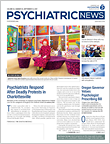Physician Moms: Twice the Guilt, Half the Self-Care
In medical school we were taught the general standard that patients come first, even at the expense of the doctor’s well-being. For example, little thought was given to students’ need to eat or use the restroom, especially on busier rotations, but there was no question that students were expected to carry out clinical responsibilities regardless of their own state of health.
Having had such lessons ingrained since the start of training, many physicians maintain that mentality as they enter the workforce years later. It is therefore no wonder that the statistics on physician burnout are so staggering, with more than half of physicians endorsing feeling symptoms of burnout, according to a 2015 Mayo Clinic report. This number tends to be higher in younger physicians and women physicians.
Many institutions are now addressing burnout through administrative and systematic changes, but a primary way that it can be addressed at the individual level is through self-care. The problem is that we lack the time to do it.
Society has a similar expectation about mothers—they should put themselves last and attend to their own needs only as an afterthought. Many mothers are unable to routinely shower, eat regular meals, and exercise, because here, too, who has time for such activities?
For physician mothers, these stresses are additive. There is self-doubt, fear of inadequacy, and guilt. On top of those pressures is the “motherhood penalty” that many women physicians encounter; they have fewer opportunities for leadership advancement and earn lower compensation. Many of my patients who are physician mothers describe the difficulty of trying to balance the needs of their medical practice with the needs of their families. They express fear of being viewed as “lazy” or “not pulling their weight” at work when they leave at a certain time for home. Many spend hours doing paperwork and charting in the evenings, after children are asleep. Most are not sleeping nearly enough.
In my work with these ever-busier physician moms, we focus on self-care and the importance of prioritizing oneself. We discuss how a change in priorities leads to improved outcomes for patients because there is now room for more empathy and better relationships at home. And we practice and then practice some more at taking care of ourselves—because putting oneself first is a very novel experience for most physician moms.
ANNA GLEZER, M.D. (San Francisco, Calif.) ■
